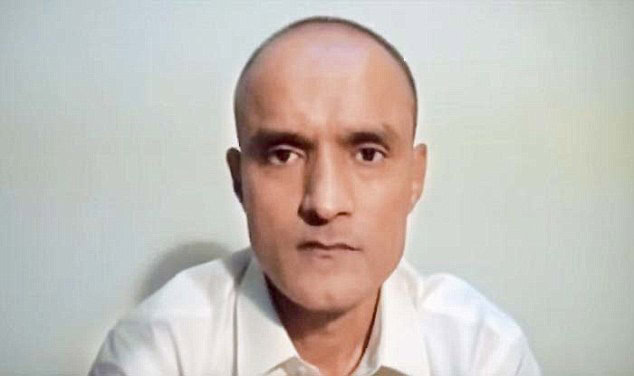NEW DELHI – India on Tuesday approached the International Court of Justice (ICJ) and asked for them to intervene in the matter of the detention and trial of Kulbhushan Sudhir Jadhav, an Indian spy sentenced to death by the Pakistan Military Court.
India instituted proceedings against Pakistan, accusing the latter of violations of the Vienna Convention on Consular Relations
In the application, India sought a stay on Jadhav’s death sentence.
India contended in the application that it was not informed of Jadhav’s detention until long after his arrest. Jadhav was arrested from Balochistan last year on March 3. The Pakistan Military Court sentenced him to death, alleging that he was working as a spy for intelligence agency Research and Analysis Wing or RAW. Jadhav was a serving officer in the Indian Navy.

Jadhav was arrested from Balochistan last year on March 3. The Pakistan Military Court sentenced him to death, alleging he was working as a spy for intelligence agency Research and Analysis Wing or RAW. Jadhav was a serving officer in the Indian Navy.
“India submits that it has information that Mr Jadhav was “kidnapped from Iran, where he was carrying on business after retiring from the Indian Navy and was then shown to have been arrested in Baluchistan” on 3 March 2016, and that the Indian authorities were notified of that arrest on 25 March 2016. It claims to have sought consular access to Mr Jadhav on 25 March 2016 and repeatedly thereafter,” the application further reads.
India, according to the ICJ press release, seeks the following reliefs:
(1) a relief by way of immediate suspension of the sentence of death awarded to the accused.
(2) a relief by way of restitution in interregnum by declaring that the sentence of the military court arrived at, in brazen defiance of the Vienna Convention rights under Article 36, particularly Article 36[,] paragraph 1 (b), and in defiance of elementary human rights of an accused which are also to be given effect as mandated under Article 14 of the 1966 International Covenant on Civil and Political Rights, is violative of international law and the provisions of the Vienna Convention
(3) restraining Pakistan from giving effect to the sentence awarded by the military court, and directing it to take steps to annul the decision of the military court as may be available to it under the law in Pakistan.
(4) if Pakistan is unable to annul the decision, then this Court to declare the decision illegal being violative of international law and treaty rights and restrain Pakistan from acting in violation of the Vienna Convention and international law by giving effect to the sentence or the conviction in any manner, and directing it to release the convicted Indian National forthwith.”
https://twitter.com/naveed360/status/862018313739657216
A veteran journalist and an expert on Pakistan-India relations, Javed Rana, explains that Pakistan and India under a bilateral agreement do not give legal rights to a spy, however, this case would bring government under pressure, at least to delay his execution. Pakistan may challenge the jurisdiction of the international court on essentially a bilateral matter, he added.
Indian media and government officials are claiming that ICJ has granted a stay against the execution of Yadav, but no such statement has been issued by the ICJ.
https://twitter.com/SushmaSwaraj/status/862013393452105733
https://twitter.com/RaisinaSeries/status/862022518130917382













